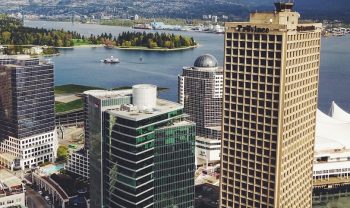Women from low socioeconomic backgrounds in Canada face significant barriers to accessing post-secondary education, particularly among Indigenous women and other underrepresented groups. Shockingly, only 8% of Indigenous women aged 25 to 64 hold a university degree, compared to 23% of non-Indigenous women, as reported by the Canadian Women’s Foundation.
In light of these challenges, it is crucial to explore effective strategies and resources that can help women in British Columbia overcome these barriers. This article will discuss accessible pathways to higher education and practical methods for managing student debt after graduation. By addressing these issues, we aim to empower women from low-income backgrounds to pursue and succeed in their educational aspirations.
Getting into College: Strategies and Resources for Women in BC
- BC Access Grant
The BC Access Grant provides upfront, non-repayable financial assistance to low- and middle-income students attending full-time undergraduate programs at public post-secondary institutions in BC. This grant significantly reduces the financial barriers to higher education.
Reference: Government of British Columbia. (2021). BC Access Grant. BC Access Grant.
https://studentaidbc.ca/explore/grants-scholarships/bc-access-grant
- BC Loan Forgiveness Program
The BC Loan Forgiveness Program forgives a portion of BC student loans for graduates who work in underserved communities or high-demand occupations, which can be especially beneficial for women pursuing careers in education, healthcare, and social services.
Reference: Government of British Columbia. (2021). BC Loan Forgiveness Program. BC Loan Forgiveness Program.
https://studentaidbc.ca/repay/repayment-help/bc-loan-forgiveness-program
- WorkBC Apprentice Training Support
WorkBC Apprentice Training Support provides financial assistance to apprentices while they complete their training, which is particularly advantageous for women entering trades.
Reference: WorkBC. (2021). Apprentice Training Support. Apprentice Training Support.
https://www.workbc.ca/Employment-Services/Apprenticeship-Training-Supports.aspx
- Minerva Foundation for BC Women
The Minerva Foundation for BC Women offers scholarships, mentorship, and leadership programs to support women’s education and career advancement. These programs are crucial for empowering women to pursue higher education and succeed in their chosen fields.
Reference: Minerva BC. (2021). Programs. Minerva BC Programs.
https://minervabc.ca/programs/
- Indigenous Student Support
Various scholarships and bursaries are available for Indigenous students in BC, such as those provided by the Irving K. Barber BC Scholarship Society. These financial aids help bridge the gap and support Indigenous women in accessing higher education.
Reference: Irving K. Barber BC Scholarship Society. (2021). Indigenous Awards. Indigenous Awards.
https://www.bcscholarshipsociety.ca/indigenous-awards/about-this-award/
- BC Work Study Programs
Many BC post-secondary institutions offer work-study programs that allow students to work part-time on campus, providing income and valuable work experience. This can be particularly helpful for women balancing education with other responsibilities.
Reference: University of British Columbia. (2021). Work Learn Program. UBC Work Learn Program.
https://students.ubc.ca/career/work-learn-program
- Single Parent Employment Initiative
The Single Parent Employment Initiative (SPEI) provides financial support for single parents on income assistance to pursue education and training. This initiative is particularly beneficial for single mothers looking to improve their education and career prospects.
Reference: Government of British Columbia. (2021). Single Parent Employment Initiative. Single Parent Employment Initiative.
https://www.workbc.ca/supporting-employment-goals-single-parents
- BC Indigenous Student Award
The BC Indigenous Student Award helps Indigenous students in BC access post-secondary education by providing financial assistance based on need and merit. This award is a crucial resource for Indigenous women pursuing higher education.
Reference: Irving K. Barber BC Scholarship Society. (2021). BC Indigenous Student Award. BC Indigenous Student Award.
https://www.bcscholarshipsociety.ca/indigenous-awards/about-this-award/
Managing Debt After Graduation
- Income-Driven Repayment Plans
Graduates can opt for income-driven repayment plans that adjust their monthly student loan payments based on their income and family size. This makes it easier to manage payments without undue financial strain.
Reference: Government of Canada. (2021). Repayment Assistance Plan. Repayment Assistance Plan.
https://www.canada.ca/en/services/benefits/education/student-aid/grants-loans/repay.html
- Loan Forgiveness Programs
Participation in loan forgiveness programs can significantly reduce the debt burden. These programs often target specific professions or regions, providing substantial financial relief for graduates.
Reference: Government of British Columbia. (2021). BC Loan Forgiveness Program. BC Loan Forgiveness Program.
https://www.canada.ca/en/services/benefits/education/student-aid/grants-loans/repay.html
- Part-Time or Freelance Work
Taking on part-time jobs or freelance work can help generate additional income to manage student loan payments. This approach provides financial flexibility and work experience, enhancing employability.
- Refinancing Student Loans
Refinancing student loans to secure a lower interest rate can reduce the overall cost of debt. This option is worth exploring for graduates with high-interest loans.
Reference: Government of Canada. (2021). Consolidating Student Loans. Consolidating Student Loans.
https://www.canada.ca/en/services/benefits/education/student-aid/grants-loans/repay.html
- Budgeting and Financial Planning
Creating a budget and financial plan is essential for managing expenses and prioritizing debt repayment. Effective budgeting can help graduates allocate funds efficiently and avoid unnecessary debt.
Reference: Financial Consumer Agency of Canada. (2021). Budget Planner. Budget Planner.
https://itools-ioutils.fcac-acfc.gc.ca/BP-PB/budget-planner
- Temporary Deferment or Forbearance
In cases of financial hardship, graduates may qualify for temporary deferment or forbearance, allowing them to pause or reduce loan payments until their financial situation improves.
Reference: Government of Canada. (2021). Repayment Assistance Plan for Borrowers with a Permanent Disability. Repayment Assistance Plan for Borrowers with a Permanent Disability.
https://www.canada.ca/en/services/benefits/education/student-aid/grants-loans/repay.html
- Employer Student Loan Repayment Programs
Some employers offer student loan repayment assistance as part of their benefits package. Graduates should explore this option when evaluating potential employers.
- Community Service and Volunteer Work
Programs like Teach For Canada provide stipends or loan forgiveness in exchange for service in high-need areas. This can be a rewarding way to manage debt while contributing to community development.
- Networking and Professional Development
Attending networking events, joining professional organizations, and seeking internships can improve job prospects and facilitate entry into desired career fields, potentially accelerating debt repayment.
Navigating the path to higher education and managing the resulting debt can be particularly challenging for low-income women in British Columbia. However, with the right strategies and resources, these barriers can be overcome. From leveraging grants and scholarships to utilizing loan forgiveness programs and income-driven repayment plans, there are numerous options available to support these women in achieving their educational and career goals. By taking advantage of these resources, low-income women can not only access higher education but also manage their financial obligations effectively, paving the way for a brighter future.





